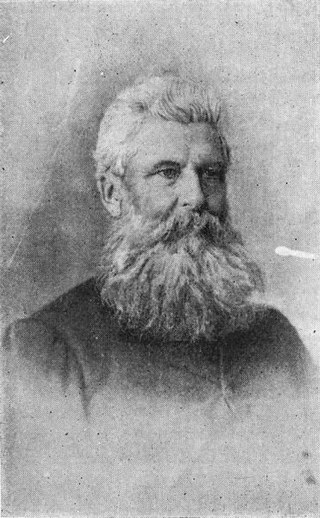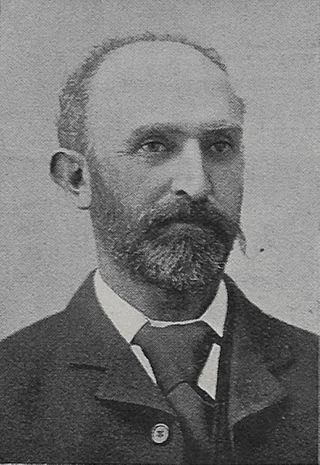
Hokitika is a town in the West Coast region of New Zealand's South Island, 40 kilometres (25 mi) south of Greymouth, and close to the mouth of the Hokitika River. It is the seat and largest town in the Westland District. The town's estimated population is 3,120 as of June 2023.

Frederick William Schramm was a New Zealand politician of the Labour Party. He was the eleventh Speaker of the House of Representatives, from 1944 to 1946.
West Coast is a former New Zealand Parliamentary electorate, from 1972 to 1996.
Kumara was a parliamentary electorate in the West Coast region of New Zealand, from 1881 to 1890.
Hokitika is a former parliamentary electorate in the West Coast region of New Zealand, based on the town of Hokitika. It existed from 1871 to 1890 and was represented by nine members of parliament. For a time, it was one of the two-member electorates in New Zealand.
Westland Boroughs was a parliamentary electorate in the West Coast of New Zealand from 1866 to 1870.
Westland South was a parliamentary electorate on the West Coast of New Zealand from 1868 to 1870.
Westland was a parliamentary electorate in the West Coast of New Zealand from 1866 to 1868 and 1890 to 1972. In 1972 the Tasman and West Coast electorates replaced the former Buller and Westland electorates.

Charles Edward Button was a solicitor, Supreme Court judge, Mayor of Hokitika and later Birkenhead, and an independent conservative Member of Parliament in New Zealand. Born in Tasmania, he came to New Zealand with his wife in 1863. He first lived in Invercargill, then in Westland, and after a brief period in Christchurch, he settled in Auckland. He was an MP for two periods, and when he was first elected to Parliament, he beat his colleague, friend, political opponent, and later Premier Richard Seddon; this was the only election defeat ever suffered by Seddon.
Edmund Barff was a 19th-century Member of Parliament from the West Coast, New Zealand.
John Bevan was a 19th-century member of the House of Representatives. He was an auctioneer and merchant from Hokitika on the West Coast of New Zealand.

Gerard George Fitzgerald was a 19th-century Member of Parliament in New Zealand. Like his brother James FitzGerald, he was a journalist of considerable ability, and co-founded The Southland Times in 1862. For the last 19 years of his life, he was editor of The Timaru Herald.

Joseph Grimmond was a gold miner and politician from the West Coast, New Zealand. He was mayor of Ross for many years, represented the Hokitika electorate in the House of Representatives for one term, and was later called to the Legislative Council.
Robert Caldwell Reid was a 19th-century Member of Parliament from the West Coast, New Zealand. Born in Scotland and attracted by the gold rushes in Victoria and the West Coast, he was later the proprietor of a series of newspapers.
John White was a 19th-century member of the House of Representatives from the West Coast, New Zealand.
The Westland Boroughs by-election 1868 was a by-election held in the Westland Boroughs electorate during the 4th New Zealand Parliament, on 3 April 1868.

Westland County, also known as County of Westland, was a local government area on the West Coast of New Zealand's South Island. It existed from 1868 to 1873, and then from 1876 until 1989. In its first incarnation, it constituted the government for the area that was split from the Canterbury Province, with the West Coast Gold Rush having given the impetus for that split. It had the same administrative powers as a provincial council, but the legislative power rested with Parliament in Wellington. The first Westland County was the predecessor to Westland Province.

Stephen Marmion Lowe is a New Zealand prelate of the Roman Catholic Church. On 18 December 2021, Pope Francis appointed him as the twelfth Bishop of Auckland, succeeding Bishop Patrick Dunn. From 2015 until his Auckland appointment, he was the Bishop of Hamilton, New Zealand.

The Hokitika by-election 1878 was a by-election held in the multi-member Hokitika electorate during the 6th New Zealand Parliament, on 26 June 1878. The by-election was caused by the resignation of incumbent MP Charles Button and was won by Seymour Thorne George, who defeated Gerard George Fitzgerald. Thorne George was suggested as a candidate by the premier, Sir George Grey; he was the Premier's nephew, and lived in the North Island.

The Hokitika Clock Tower, initially called the Westland War Memorial and then the Coronation and War Memorial, is a prominent landmark in Hokitika, New Zealand. The memorial was initiated, fundraised for, and carried out by a committee, to commemorate the region's contribution to the Second Boer War; not just the four local men who had died but all 130 who had gone to war in South Africa. An additional purpose was to provide Hokitika with a town clock.










